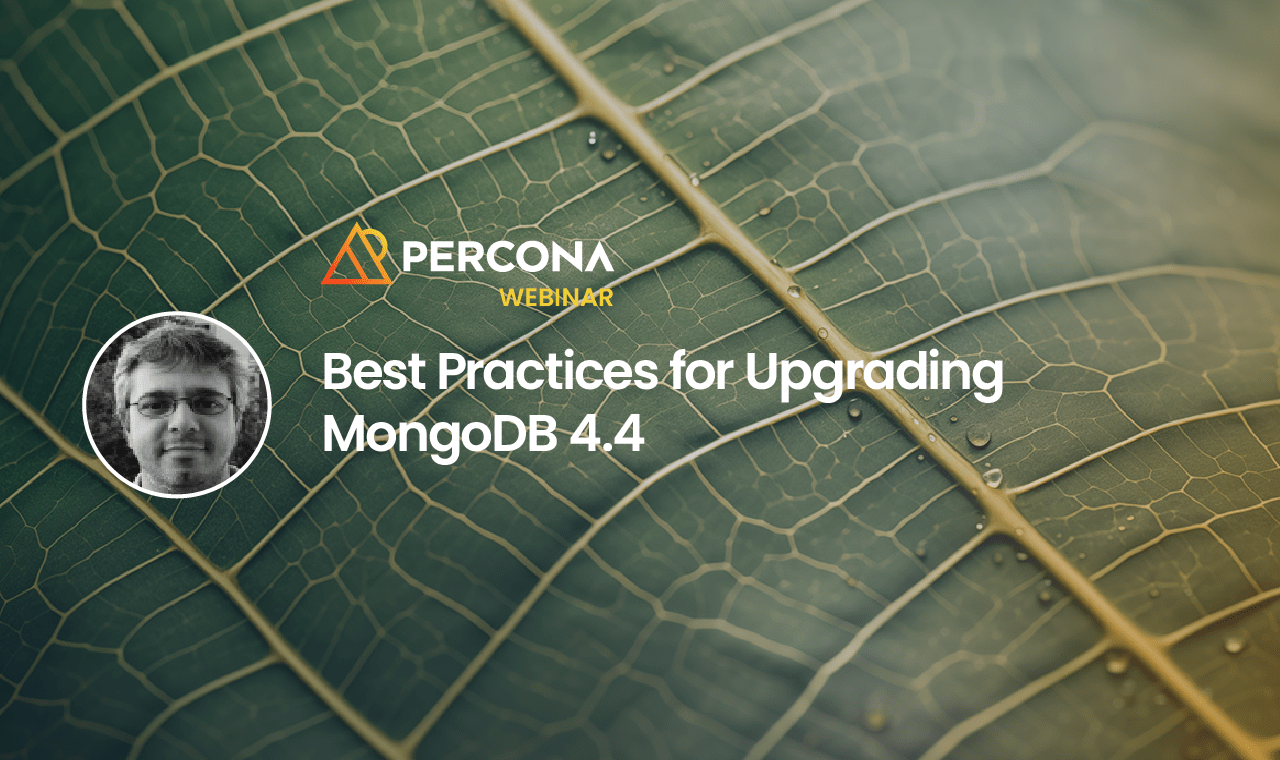Percona Backup for MongoDB
Enterprise-grade MongoDB backup. 100% open source.
Percona Backup for MongoDB is an open source, distributed and low-impact solution for consistent backups of MongoDB clusters, including sharding support.
You’ll be able to make logical, physical, incremental, selective and snapshot backups and restores. Plus, point-in-time recovery functionality allows you to recover your database to a specific timestamp.
Why choose Percona Backup for MongoDB?
With an easy command-line interface, you can perform consistent backup/restore of clusters and non-sharded replica sets, and improve cluster backup consistency.
- Open source enterprise-grade features:
- Logical backups and restores
- Physical (a.k.a. ‘hot’) backup and restore
- Incremental backups
- Point-in-time recovery
- Snapshot CLI
- Selective logical backups and restores
- Works for both sharded clusters and non-sharded replica sets
- Simple command-line management utility
- Simple, integrated-with-MongoDB authentication
- Distributed transaction consistency with MongoDB 4.2+
- Can be used with any S3-compatible storage
- Support for Microsoft Azure Blob storage
- Supports filesystem storage type for locally mounted remote filesystem backup servers
- Easily manage backups via integration with Percona Monitoring and Management GUI
What’s more, we’re constantly improving Percona Backup for MongoDB and listening to feedback from the community through JIRA.
Get started with
Percona Backup for MongoDB
Visit the Download page to select product versions and download packages.
Have Questions?
Frequently Asked Questions
Can I automate backups with Percona Backup for MongoDB?
Percona Backups for MongoDB (PBM) can be semi-automated via scripts like crond. Alternatively, you can automate backups using Percona Operator for MongoDB.
What versions of MongoDB are compatible with Percona Backup?
Percona Backup for MongoDB is compatible with the following MongoDB versions:
- For logical backups – Percona Server for MongoDB and MongoDB Community v4.0 and higher with MongoDB Replication enabled.
- For physical backups – Percona Server for MongoDB starting from versions 4.2.15-16, 4.4.6-8, 5.0 and higher with MongoDB Replication enabled and WiredTiger configured as the storage engine.
- Incremental physical backups are supported for Percona Server for MongoDB starting with the following versions: 4.2.24-24, 4.4.18, 5.0.2-1, 6.0.2-1 and higher.
Can I run multiple backups on the same machine at the same time?
If you have multiple different MongoDB instances running on the same hardware you can run simultaneous parallel backups for those different clusters.
What are the hardware and software requirements for running Percona Backup for MongoDB?
Any system running MongoDB CE or Percona Server for MongoDB on a Linux OS can use PBM. PBM requires at least 1 GB of available RAM to operate. Consult the list of supported platforms (MongoDB section) for more information.
What are the different types of backup types and strategies provided by Percona Backup for MongoDB?
- Logical backups to back up databases or collections for disaster recovery purposes.
- Logical backups to clone or migrate databases or collections to different instances or platforms.
- Physical backups to reduce backup time and reduce potential performance impacts of backing up large (multi-terabyte) data sets.
- Selective backups to work with a desired data set or subset. Ex. Backup of a collection or smaller subset of entire data set for testing or development use.
- Incremental physical backups to ensure that critical data is regularly backed up, to reduce potential recovery time in case of disaster, and to save on costs for storage and network transfer.
- Restore the full database or specific data set from a backup
- Restore the database to a specific point in time
- Replay oplog on top of EBS-snapshots
- Snapshot-based physical backups are coming soon.
Have Questions?
Need help with your open source setup?
Percona Experts will guide you through implementation and support you long-term.
By submitting my information I agree that Percona may use my personal data in sending communication to me about Percona services. I understand that I can unsubscribe from the communication at any time in accordance with the Percona Privacy Policy. This site is protected by reCAPTCHA and the Google Privacy Policy and Terms of Service apply.
Featured MongoDB Resources
Featured Blog Articles
RECOMMENDED ARTICLES
Securing Your MongoDB Database: Essential Best Practices
May 6, 2024
Blog
Benchmarking MongoDB Performance on Kubernetes
April 26, 2024
Blog
MOST POPULAR ARTICLES
Auditing login attempts in MySQL
December 28, 2012
Blog
Deploy Django on Kubernetes With Percona Operator for PostgreSQL
June 20, 2023
Blog
MySQL “Got an error reading communication packet”
May 16, 2016
Blog






